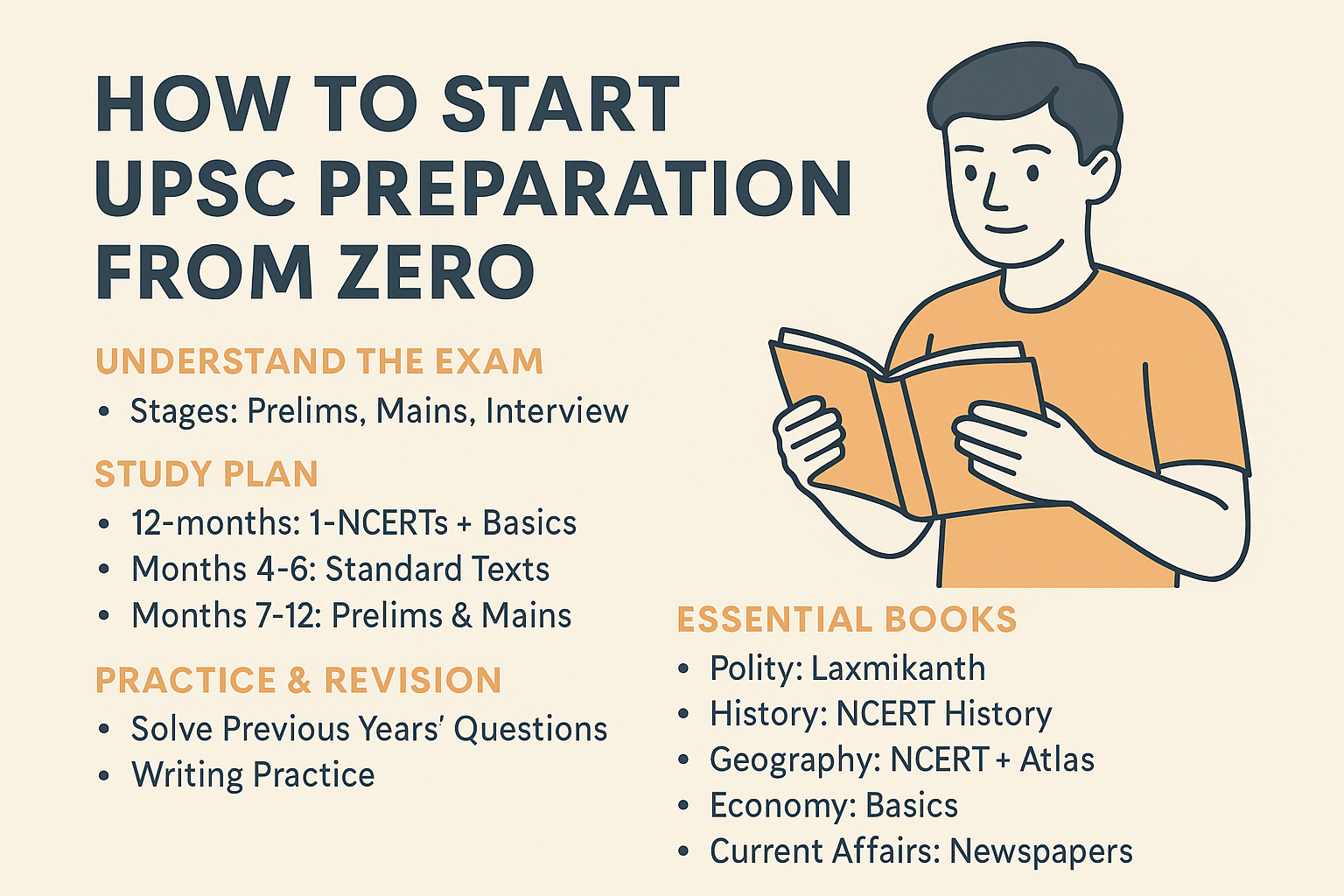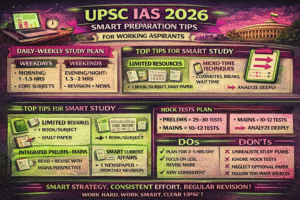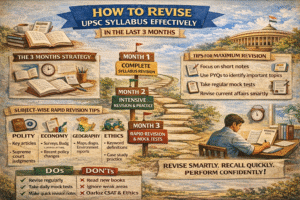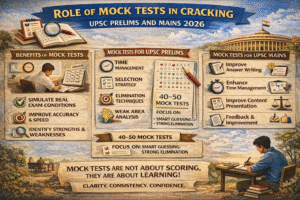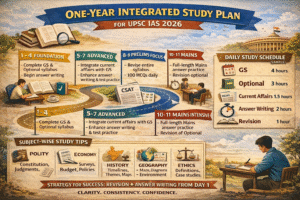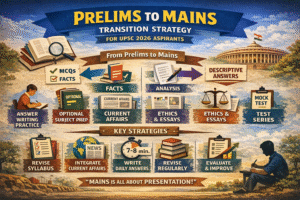Starting UPSC from scratch can feel intimidating. This step-by-step blueprint—drawn from Ernakulam’s coaching ecosystem—tells you exactly what to study, how to study, and when to test yourself so you can move from beginner to mains-ready with confidence. It’s also SEO-optimized for “UPSC Civil Service Coaching in Ernakulam.”
The Beginner’s Mindset (Week 0)
Commit to 12 months. UPSC is a marathon: Prelims → Mains → Interview.
Keep it lean. NCERTs + Standard Texts + PYQs + Notes + Tests.
Track weekly. One page: targets, hours, mock scores, mistakes.
12-Month Roadmap (Zero to Mains-Ready)
Months 1–3: Foundation (NCERT + Basics)
NCERT sweep (Class 6–12):
Polity, History, Geography, Economy, Environment, Science & Tech.
Make one-page chapter summaries; note map locations.
Current Affairs habit: 45–60 mins/day (editorial + schemes + data).
CSAT warm-up: Arithmetic, logic, comprehension 3 days/week.
PYQ familiarisation: Browse last 10 years’ Prelims to learn framing.
Weekly target: 6 days study + 1 self-audit (mistake log).
Months 4–6: Standard Texts + First Test Cycle
Core books:
Laxmikanth (Polity), Spectrum (Modern), NCERT+GC Leong (Geo), Shankar (Environment), Ramesh Singh/Basics (Economy), Art & Culture notes/CCRT.
Mains basics: Start answer-writing (AWP): 3 answers/day (10–12 lines, intro-body-way-forward).
Prelims tests: 1 sectional test/week with analytics.
Optional selection: Decide based on interest + availability of guidance in Ernakulam (strong benches: Public Administration, Geography). Start syllabus mapping.
Months 7–9: Prelims Intensive + Optional Build
Prelims focus:
2 GS tests/week + 1 CSAT full test/fortnight.
Revision loops: Test → error note → micro-notes → retest.
Current affairs integration: Link news to GS syllabi & PYQs.
Optional: 6–8 hours/week (core concepts + case studies/maps).
Mini-mains practice: 1 GS answer/day to retain structure.
Months 10–12: Mains Ramp-Up (Post-Prelims)
GS papers: Full-length tests with copy-checking rubrics (content, structure, examples, value-addition: diagrams, committees, Articles, SDGs).
Essay: 1 essay/week (two themes: governance + economy/society).
Optional: Complete notes + past 10-year PYQs; make 20-marker frameworks.
Interview prep: DAF worksheet, Kerala & district profile (Ernakulam, Kochi port, industries, tourism, urban governance).
Daily & Weekly Timetable (Beginner Friendly)
Daily (Weekdays):
2h Core Subject 1 (e.g., Polity)
2h Core Subject 2 (e.g., History/Geography)
1h Current Affairs (editorial → notes → MCQs)
45m CSAT/Quant/RC (alternate days)
30m Revision (flash notes/maps)
Weekend:
Prelims sectional test (2 hrs) + 1 hr analysis (redo wrong Qs)
3 mains answers (timed 7–8 min each)
Optional (3–4 hrs) + map/case-study prep
Minimalist Booklist (Do Not Hoard)
Polity: Laxmikanth
Modern History: Spectrum; add NCERT 11–12
Ancient/Medieval: Old NCERTs + brief handouts
Geography: NCERT 6–12 + GC Leong; atlas drills
Economy: NCERT 11–12 + one basic text; budget/economic survey gist
Environment: Shankar + MoEFCC updates
Sci & Tech: NCERT + monthly compilations (focus application)
Art & Culture: Class 11 Fine Arts NCERT + concise notes
Current Affairs: Daily editorials + monthly compilations
Rule: Finish one resource per subject + PYQs; revise thrice.
How to Use PYQs (Your Secret Weapon)
Sort by topic (e.g., Polity—Parliament, FR/FD/ DPSP).
Mark traps (extreme words, factual pairs, timeline confusions).
Convert wrong answers into micro-notes (“1 page = 10 mistakes”).
Mains PYQs: build 10–12 point skeletons for recurring themes.
Current Affairs → Marks (Integrate, Don’t Memorise)
Link news to GS syllabus keywords (e.g., “federalism”, “environmental governance”).
Maintain scheme sheets: ministry, aim, beneficiaries, funding, UPSC angle.
Add Kerala/Ernakulam case studies: Kochi Water Metro, port-led development, waste management, coastal resilience—great for Ethics/GS-III.
CSAT Strategy (Don’t Get Eliminated)
Diagnose: take one full CSAT paper now; log weak sections.
Practice 3 sets/month; timed RCs and mental math daily.
Build a formula diary + logic patterns (arrangements, Venns).
Answer-Writing Formula (ACE)
Answer the demand (define → diagnose → deliver).
Cluster content: 3–4 sub-headings, bullets, data points.
Enhance: diagrams/flowcharts, Articles/cases, committees, schemes, examples from Kerala/Ernakulam where relevant.
End with 2–3 way-forward points (ethical, institutional, technological).
Three-Layer Revision Plan (3–2–1)
T–30 days (Prelims): 3 rounds—subject notes + high-value MCQs.
T–14 days: 2 rounds—error logs + maps + schemes.
T–7 to T–1: 1 round—formulae, polity articles, environment lists.
Using Ernakulam Advantage
Libraries & study rooms around MG Road, Kaloor, Vyttila for long sittings.
Peer groups for daily AWP (post class), weekly mock discussions.
Local mentoring: Many institutes provide Affordable Fee plans, doubt clinics, and interview labs—use them for mock boards & DAF drills.
Self-Audit Template (print and tick weekly)
Finished target NCERT/Chapter
1 sectional test + analysis log
15 mains answers + 1 essay (advanced phase)
6 CA micro-notes; 2 Kerala case studies
CSAT practice (3×45m)
Updated error notebook + flashcards
1 doubt-clearing/mentoring session
Common Beginner Mistakes (and Fixes)
Too many books → no revisions. Fix: one text/subject + 3 revisions.
Skipping CSAT. Fix: schedule non-negotiable CSAT blocks.
Only reading, no tests. Fix: test→analyse→retest loop weekly.
Notes everywhere. Fix: single master notebook + digital index.
FAQ: “UPSC Civil Service Coaching in Ernakulam”
Q1: Can a beginner crack UPSC in one year from Ernakulam?
Yes—if you follow a structured plan, take regular tests with analytics, and get mentor feedback.
Q2: Do I need coaching or can I self-study?
Self-study works if you can replicate discipline, test quality, and feedback. Coaching adds structure, peer pressure, and expert corrections.
Q3: Which optional has strong support locally?
Typically Public Administration and Geography; verify via sample classes and topic plans.
Q4: What if I’m working or in college?
Choose weekend/early-morning batches with recordings, + a weekly target tracker and monthly mentor review.
Final Word
Starting from zero is absolutely doable. Follow the 12-month roadmap, keep your resources lean, test weekly, revise thrice, and use Ernakulam’s coaching and peer ecosystem for accountability.
Want this converted into a printable 100-day starter plan or a Google Sheet tracker for your study hours and test scores? Say the word and I’ll generate it for you.

